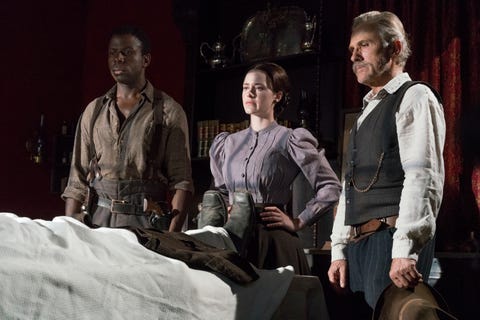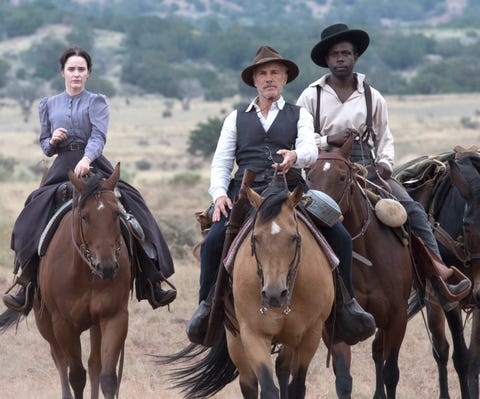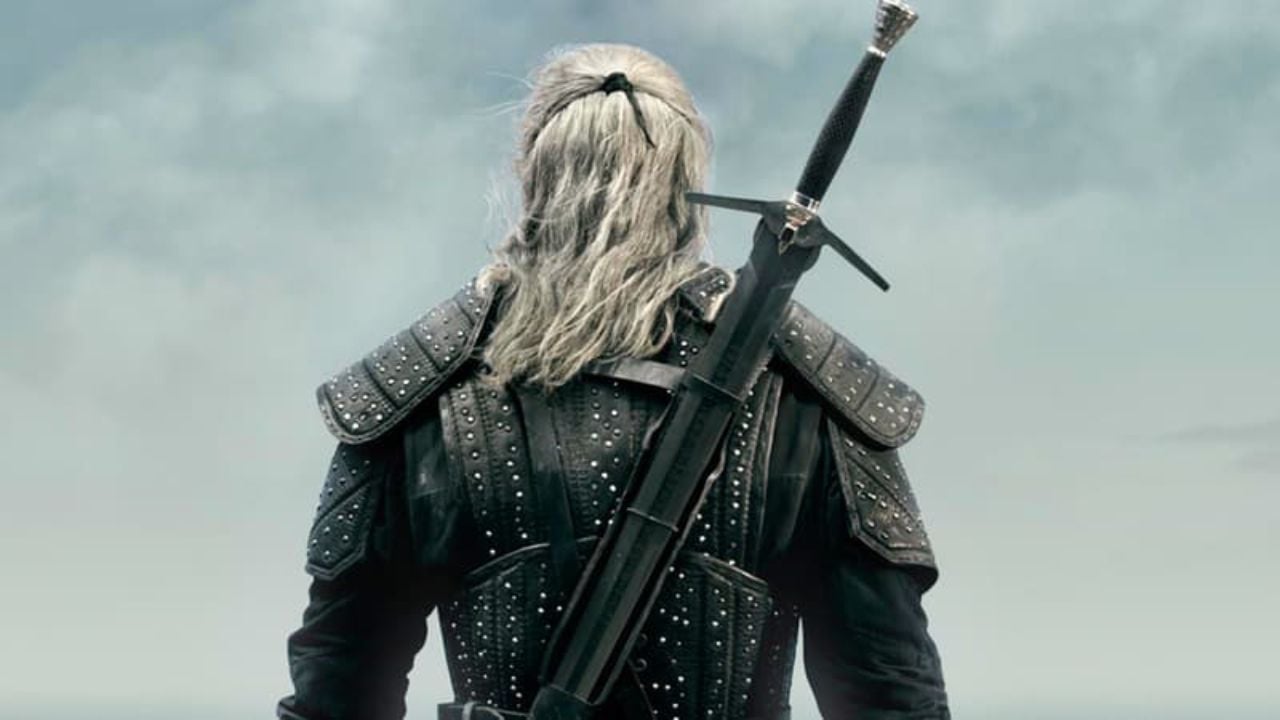We spoke to the actor on the occasion of the premiere of ‘The Bounty Hunter’: “Being an Austrian, the idea of conquering the west has never been a priority. Who would be excited by the idea of conquering Switzerland?”
The latest ups and downs in the industry do not seem to have made a dent in the talent of Christoph Waltz (Vienna, Austria, 1956) to move like a fish in water through American cinema. After joining Wes Anderson’s troupe in ‘The French Chronicle’ (2021) and reincarnating the supervillain Ernst Stavro Blofeld in ‘No Time To Die’ (2021), the Viennese has given voice to Count Volpe from ‘Pinocchio by William del Toro’ (2022) and has premiered in the series world as the undesirable boss of ‘The Consultant’, available on Prime Video. Now, to the brand new list of his collaborations with masters of world cinema, Christoph Waltz is allowed to add the name of Walter Hill, author of modern classics such as ‘The Lords of the Night’ (1979), ‘Limit: 48 hours’ (1982) and ‘Streets of Fire’ (1984)and with which he premieres ‘The bounty hunter’, a feature film with which the Austrian returns to the western, specifically to 1892, to Texas, where he gives life to Max Borlund, a character who is commissioned to rescue a kidnapped woman (Rachel Brosnahan) as outlaw Joe Cribbens (Willem Dafoe) breaks out of prison seeking revenge on Max. Christoph Waltz thus reprises the role of an unscrupulous gunman that he played in ‘Django Unchained’ (Quentin Tarantino, 2012)considered one of the best westerns of the 21st century.
How would you define your relationship with the western genre?
I’m interested in the most flowery and convulsive part of the genre, but being Austrian, the idea of conquering the west… let’s just say it’s never been a priority. Who could be excited by the idea of conquering Switzerland? (Waltz smiles wryly). For Americans it is different, because through this genre they have built their myths and have communicated them to the world. However, for Europeans, Sergio Leone’s films, which distorted the coordinates of the genre to the point of parody, were more understandable and ‘authentic’ than classic westerns.
‘The bounty hunter’ offers an alternative look at that American myth…
If we look at the true history of the United States, we see that the people who, back in 1868, were traveling west were not the British, who had already acquired land in the east, but were Italians, Poles, Germans, French … The history of the conquest of the west was led by immigrants.
What has it been like working with a legend of American cinema like Walter Hill?
The best thing about this project is that Walter involved me from a very early stage of production, when he was still writing the script. And this is how I would always like to work, knowing the film from the inside. In this way, it is not necessary to discuss too many things with the director, because everything is very clear from the beginning.
But there are details that I imagine are not in the script, such as physical issues typical of the western: how to ride, how to hold a rifle…
The thing about the rifle isn’t much of a mystery. The weapon defines the way it should be handled. I must say that I am not a lover of weapons, not at all. But as an actor I owe it to the details that give texture and color to my performance. And when your character handles a Winchester with ease, well, you have to learn how to do it. The objects usually have a very specific function, which is something that we actors appreciate. The Winchester should be held in such a way that the shells pop out of the gun, empty, each time you load.

Here his role, the bounty hunter Max Borlund, is a more sober and less loquacious man than the characters we know him for, such as Hans Landa from ‘Inglourious Basterds’ (Q. Tarantino, 2009)…
I am fully aware of it. And that difference is something I look for in my work. Human beings move based on the responses generated by our actions. If something works for us and we have a feedback positive, we tend to repeat it. It is not a matter of self-indulgence or vanity, but it is in our nature since we formed our character seeking to please our parents. But all this poses a huge danger to the actors. Getting carried away with flattery is cheating, and in fact it is very childish behavior.
How do you choose your roles at this point in your career?
The actors depend on the offers we receive. There are times when you don’t get any particularly interesting proposals, but you feel like working, and then you start talking to a director and you see that the project contains interesting ideas. And then another actor comes on the project and things get even better. ‘The Bounty Hunter’ has allowed me to work with Willem Dafoe! Projects are like amoebas, they are continually transforming, until suddenly you roll and the film remains, immovable, on the screen.

Do you feel comfortable in the role of the European who has conquered Hollywood?
Working in the United States has allowed me to look at Europe from a distance. And I have discovered the almost desperate way in which many European films try to emulate American cinema. I recently had the fortune to review the work of Vittorio De Sica. There are no words to define those movies! Is it possible to imagine a better cinema? The stories, the fun, the despair of its characters, the understanding of what is wrong with society… It’s all there, at the heart of Italian cinema. And then you have films like ‘Gomorrah’ (2008), which is entertaining, but on an aesthetic and thematic level it doesn’t differ from what an American film of the same genre can offer. I think it’s a shame, because we’re giving something very much ours to the Americans, and they don’t show a reciprocal interest in European cinema.
Source: Fotogramas
Rose James is a Gossipify movie and series reviewer known for her in-depth analysis and unique perspective on the latest releases. With a background in film studies, she provides engaging and informative reviews, and keeps readers up to date with industry trends and emerging talents.







